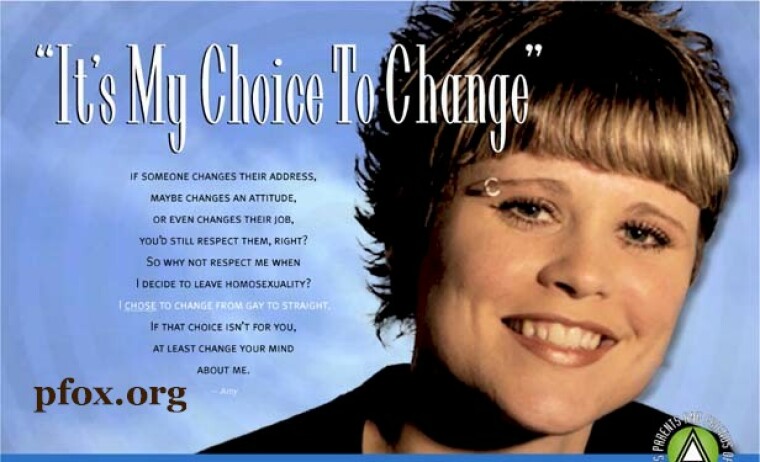Christians can't dismiss all reparative therapy, former Southern Baptist strategist says

LOUISVILLE, Ky. (Christian Examiner)—Comments connected to a conference at Southern Baptist Theological Seminary in Louisville, Ky., re-ignited controversy on evangelicals and reparative therapy. SBTS president Al Mohler called the controversial practice "superficial" at a press conference held along with the Oct. 5-7 Association of Certified Biblical Counselors conference, held on the seminary's campus.
Reparative therapy has been very effective for some people and I think Christians should be very careful about dismissing it out of hand.
"The Christian church has sinned against the LGBT community by responding to this challenge in a superficial way," Mohler said. "It's not something that is so simple as converting from homosexual to heterosexual, and from our gospel-centered theological understanding that would not be sufficient."
SBTS officials organized the press conference where Mohler made his comments following protests of the ACBC conference by LGBT groups.
The comments—which clearly highlight Mohler's problems with secular reparative therapy—came during what's been an abrupt shift on reparative therapy by evangelicals in recent years. Key evangelical leaders have distanced themselves from the practice.
Most notably Alan Chambers, former president of Exodus International, publically repented for his organizations' efforts to change the orientation of those with same-sex attractions. Chambers' comments came as Exodus closed down its doors in 2013.
ACBC executive director and SBTS professor Heath Lambert added to Mohler's comments by noting, "We don't call people to embrace heterosexuality. We call people to embrace Christian faithfulness."
Russell Moore, the president of Southern Baptists' Ethics and Religious Liberty Commission, expressed similar concerns about reparative therapy last year at an ERLC conference.
"The utopian idea if you come to Christ and if you go through our program, you're going to be immediately set free from attraction or anything you're struggling with, I don't think that's a Christian idea," said Moore, as quoted in a Christian Today article.
"Faithfulness to Christ means obedience to Christ. It does not necessarily mean that someone's attractions are going to change," Moore said in the article.
But not all evangelicals are on board with this shifting attitude on reparative therapy.
In a blog post written two days after Mohler's press conference, conservative Christian commentator Janet Mefferd questioned whether Christian leaders had any business helping the "LGBT movement eradicate all secular help for people with unwanted same-sex attractions."
In a blog post, entitled "Reparative Therapy, Southern Baptists and Moving the Goalposts," Mefferd expressed the opinion that helping to end secular reparative therapy may eventually provide LGBT activists resources to attack biblical counseling that teaches the sinfulness of homosexual behavior.
"So is this really the time for Christian leaders to concede even more territory to a movement that is already bent on total cultural annexation?" Mefferd writes. "Regardless of their positions on the therapy itself, why are Mohler and Lambert not discerning the times and instead standing up to fight for the rights of any American to personal autonomy and their own therapy choices, just as a matter of individual liberty and self-determination?"
James T. Draper Jr., a past president of the SBC, and the former head of LifeWay Christian Resources, told Christian Examiner that therapy is, in essence, reparative.
"By its very nature all therapy is reparative," said Draper, who played a key role in an SBC task force on ministry to homosexuals in the early 2000s. "If it weren't you wouldn't need counselors, you wouldn't have psychiatrists. What a therapist does is to try to find a problem and fix it. To say that homosexual therapy is reparative is a redundant thing because all therapy is reparative."
That's important to clarify because Christians have an obligation to be clear about the biblical teaching that "homosexuality is not an appropriate lifestyle," said Draper, who also believes most homosexuals want to change.
That doesn't mean that Christians should minister in judgmental spirit, however, Draper said.
"No one chooses what they're tempted by," Draper said. "Every homosexual that is active in that area is tempted, and they make a choice whether to yield to it or not. There's many illustrations of heterosexuals who never marry. What happens? Do they not have a sex drive? Are they not attracted to the opposite sex? No. What happens is they make a choice not to yield to the temptation."
Bob Stith, who served on the SBC task force with Draper, notes that one of the problems when discussing reparative therapy is that it means different things to different people. He specifically noted Wikipedia's definition of conversion therapy (which is a different name for reparative therapy)—"any treatment that seeks to change sexual orientation from homosexual to heterosexual."
"Reparative therapy has been very effective for some people and I think Christians should be very careful about dismissing it out of hand," said Stith, who has previously served as the SBC's national strategist for gender issues. "Given the definition from Wikipedia—which many Americans may believe—this dismissal would provide fodder for those who oppose even biblically based counseling since this would fit the reparative therapy definition above.
"Having said that, the ministries with which I am most familiar are more committed to biblical discipleship than therapy," said Stith, who currently heads the Gender and Family Issues Ministry in Southlake, Texas. "We believe that ultimately overcoming any sinful desire is most successful when rooted in Scripture. But we also have recognized that some who come to these ministries need more intensive care than can be provided in a weekly group meeting. For these, biblically based therapy is very helpful."
Last spring President Obama called for a national ban on reparative therapy. State bans have also been introduced in numerous states.
EDITOR'S NOTE: Alan Chambers previously delivered reports to the SBC task force on ministry to homosexuals, and Exodus was listed as a ministry resource for Southern Baptists. Bob Stith was a former member of the board of Exodus, but was rotated off the board before Chambers moved to dissolve Exodus.